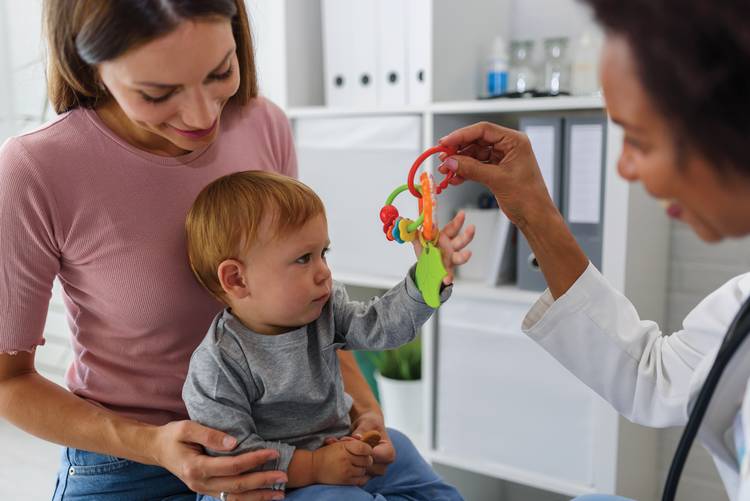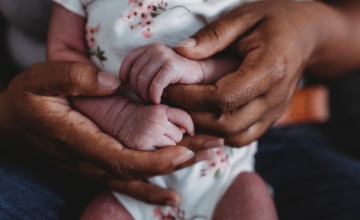Kathleen Mulrooney, Content Director, Infant and Early Childhood Mental Health
Yesterday in a New York City café for lunch, with tables just inches from each other, I heard a woman mention to her companion that she had been in Rome recently for an international conference. What a small world, I thought, that someone I didn’t know and randomly sat next to had experienced the same gathering half way around the world as I had!
I paused to reflect on some of my memories of this gathering in May of the World Association of Infant Mental Health (WAIMH) Congress. This year’s Congress was exceptional for ZERO TO THREE not only because we were invited to present a symposium, but also because we were able to arrange an intensive, extended day of training for worldwide clinicians on the use of our new diagnostic classification system: DC:0-5™ Diagnostic Classification of Mental Health and Developmental Disorders in Infancy and Early Childhood.
I was privileged to present this curriculum along with two very prominent infant mental health experts and DC:0-5 developers, Dr. Charles Zeanah (Chair of the Diagnostic Classification Task Force) and Dr. Alicia Lieberman (renown psychologist, trauma expert and member of the Task Force). It was a joy and privilege to listen to the passion and depth of clinical experience and empirical knowledge that Dr. Zeanah and Dr. Lieberman shared with participants. The audience of over 50 clinicians—from North America, South America, Europe, Asia, Africa and Australia—were highly engaged in the process, continually sharing clinical examples. A spirit of community fostered by sitting at small tables and engaging in group discussions created a warm, personal training experience with evidence of much networking. The training extended into the evening with a full case report covering diagnostic impressions. Again, the sense of global community as people exchanged ideas over a dinner buffet was palpable.
Throughout the Congress, many clinicians from varied disciplines sought us out at workshops or at ZERO TO THREE’s exhibit booth to inquire more about DC:0-5, training opportunities for DC:0-5, and translations of the DC:0-5 manual into other languages. It was wonderful to see that the Italian translation had been completed and was available from one of the book vendors at the conference! Meanwhile translations were in negotiation or underway for Hebrew, Hungarian, French, German, Korean, Dutch and Nordic languages, with further interest for possible Arabic, Polish, and Estonian editions. Multiple clinicians expressed the importance of having a developmentally appropriate, contextually driven, and culturally sensitive diagnostic classification system to reduce the cumulative impact of distress and impairment in children’s and family’s lives. Clearly the concept that “We diagnose disorders, not children” resonated with many who recognize that the child is not the disorder.
It was a privilege to facilitate a symposium panel: DC:0-5™ Training and Professional Development Support Around the World: Lessons Learned from Developers, Trainers, and Audiences. I presented on our efforts to create a standardized curriculum and recruit Expert Faculty who are exceptional clinicians and trainers working worldwide. The panel consisted of three other presenters who described different perspectives on DC:0-5 development and training. Dr. Miri Keren, a psychiatrist from Israel, former WAIMH President and DC:0-5 Diagnostic Revision Task Force Member, presented from the developers’ perspective on how the task force designed DC:0-5 to be used internationally. She also addressed concerns over stigma and the need to be sensitive to understanding the significance of mental health or developmental problems from a family’s cultural perspective. Dr. Nick Kowalenko, a psychiatrist from Australia and DC:0-5 Expert Faculty member, presented the trainer’s perspective on the experiences and outcomes of the DC:0-5 trainings for clinicians that were held outside of the U.S. Notably, despite relying in some cases on translators or translation devices, nearly all the participants in worldwide trainings reported that they understood the development, approach and content of DC:0-5 and felt confident in their ability to use this system. Dr. Kowalenko reflected on his successful personal DC:0-5 training experience in Shanghai, China. Finally, we were privileged to have Dr. Piret Visnapuu-Bernadt, a psychiatrist from Estonia and organizer of a training in her home country, present the clinician-participant’s perspective on learning about DC:0-5 and considering its application for clinical use in Estonia. The audience of over 100 participants learned much about the development of international training approaches for DC:0-5 and were inspired by the different perspectives and stories from our panel. Many requests for future DC:0-5 trainings were made during the WAIMH Congress.
The WAIMH Congress in Rome was a wonderful opportunity for ZERO TO THREE staff to support and connect with each other in an amazing setting and under very special circumstances. The camaraderie, passion and respect that was shared all round between participants and hosts was extremely validating, encouraging and moving.
Two months later, that brief chance encounter in a NYC café confirmed for me the growing scope of interest in the field of Infant and Early Childhood Mental Health. I look forward to contributing to more events with a greater sense of the interconnectedness of infant mental health social support systems worldwide!




